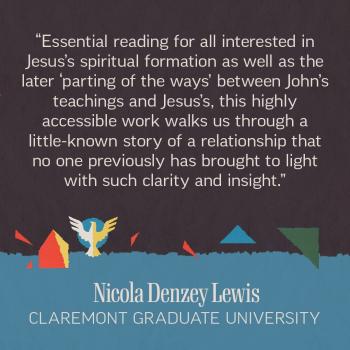Over at the blog Freedom in Orthodox, there is a review of my book The Only True God: Early Christian Monotheism in Its Jewish Context
. Walker manages to be remarkably fair, given his hostility to my stance even prior to reading. I really appreciate that, and encourage readers to click through and read his review, and leave comments there and here, to get some conversation going between those who find my arguments persuasive and those who do not.
It may be that the larger books (in particular Hurtado’s) which only appeared in print as I was finishing my own small volume or subsequently, mean that I need to produce a second expanded edition, or simply write another longer book on monotheism and Christology.
Walker asks at one point what the first Christians could have done to persuade me that they held a high Christology. Of course, such terminology as “high” is problematic. Is the exaltation of Jesus to God’s right hand and bestowal upon him of the divine name a “low” Christology, and if so, why? But in response to the question, I would point out that the NT writings were understood even by some early Christians as not redefining monotheism in the way that later orthodoxy understood them to. And so if it were just me and other modern interpreters who failed to understand these texts as identifying Jesus with the one God, then the problem might well be on our end. But the fact that ancient Christians – and in particular Jewish Christians – also understood these writings as not redefining monotheism means the key question is a different one: What we should expect these authors to have written if they had wanted to make it clear to all of their own contemporaries that their meaning was what Walker understands it to have been? In view of all the language that needed to be debated, adapted, and coined in subsequent centuries in order to make explicit what they thought were the implications of the NT depictions of Jesus, I would have expected there to be some texts that explicitly say things that point in that direction, and some responses to the controversy that such clear statements would have provoked. In their absence, I cannot but conclude that the early Jewish Christians were using their language in the way that other Jews in that period did, and that what was controversial was not saying such things, but saying such things about Jesus the crucified.
Also on the subject of monotheism and Christology, Dale Tuggy interacts with Ben Nasmith on ancient Jewish monotheism. And if you don’t own a copy of Alan Segal’s book Two Powers in Heaven, you might win a free copy over at The Jesus Blog!













